Information on COVID-19
What we are doing at Preventous to keep our patients and staff healthy:
While we encourage our patients to receive their COVID-19 vaccine (which is also available at Preventous), as per AHS guidelines, proof of vaccination is not required to visit Preventous at this time.
Our genuine and unwavering commitment to the health and safety of our patients is at the core of our business, and so is our promise to provide you with exceptional care and service. In an effort to keep delivering on both, we ask all our members to please:
- Wear a mask when entering our facilities.
- Sanitize your hands upon entering the clinic.
- Maintain at least a 2-meter distance between yourself and others.
Common symptoms of COVID-19:
- Cough or sore throat
- Runny nose
- Fever
- Shortness of breath
- Difficulty breathing (severe cases)
Useful Links:
Can I Access My Proof of Vaccination?
While proof of vaccination is not required to visit Preventous at this time, we understand that many of you might require access to your vaccine records in order to attend other facilities.
Patients 14 and older who wish to access their verified vaccination records can do so Online, through the MyHealth Records portal. This is an online tool that lets you access your personal health information from any computer, tablet, or smartphone. To sign up, follow the instructions on the website.
Your information on MyHealth Records will be automatically updated 2 to 3 weeks after your dose if you were vaccinated in Alberta. From your account, you can either:
- Print a convenient size card (starting September 19, 2021).
- Download and use the app to show or take a screenshot of your record.
Paper records are also a viable option for proof of vaccination. We recommend making a copy of the immunization record you received at your vaccination appointment. If you lost or require another paper copy, you can request it in one of the following ways:
- Contact the Pharmacy where you received your vaccination.
- Call 811 if you have received your vaccine at one of the AHS Clinics and wish to request that a copy of the record be mailed to you.
Please note that Albertans between the age of 12 and 14 must obtain a paper record from their immunization provider.
At Preventous, we take great pride in our team’s accessibility to assist our patients. If you are a Preventous Collaborative Health member in self-isolation, unable to pick up your prescriptions or unable to rely on relatives for support, please don’t hesitate to reach out.
COVID-19 Information for Albertans
Towards the end of 2019, a new coronavirus (COVID-19) was identified as the cause of an outbreak of pneumonia originating in Wuhan, China. The World Health Organization (WHO) defined coronaviruses as a large family of viruses responsible for an assortment of illness, ranging from the common cold to more severe diseases such as Middle East Respiratory Syndrome (MERS) and Severe Acute Respiratory Distress Syndrome (SARS).
The situation with COVID-19 has now evolved into a worldwide pandemic, leading the public at the mercy of rapidly changing and sometimes confusing information, in addition to the genuine health concern we all face. As preventative and proactive healthcare professionals at Preventous, we want to share some information with our patients and members of our Calgary community seeking reliable knowledge and safety protocols to protect themselves from the Coronavirus outbreak.
Protect yourself and others: what you can do to reduce the risk of contracting or transmitting COVID-19
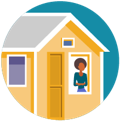
Avoid close contact
- Avoid close contact with people who are sick
- Put distance between yourself and other people if COVID-19 is spreading in your community. This is especially important for people who are at higher risk of getting very sick.
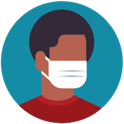
Wear a face mask
- You should wear a face mask, when you are around other people (e.g. grocery store, bus) and before you enter a healthcare provider’s office. If you are not able to wear a face mask (for example, because it causes trouble breathing), then you should do your best to cover your coughs and sneezes, and people who are caring for you should wear a face mask if they enter your room. Learn what to do if you are sick.
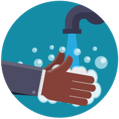
Clean your hands often
- Wash your hands often with soap and water for at least 20 seconds especially after you have been in a public place, or after blowing your nose, coughing, or sneezing.
- If soap and water are not readily available, use a hand sanitizer that contains at least 60% alcohol. Cover all surfaces of your hands and rub them together until they feel dry.
- Avoid touching your eyes, nose, and mouth with unwashed hands.
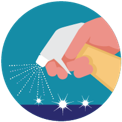
Clean and disinfect well and daily
- Clean AND disinfect frequently touched surfaces This includes tables, doorknobs, light switches, countertops, handles, desks, phones, keyboards, toilets, faucets, and sinks.
- Use detergent or soap and water prior to disinfection.
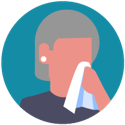
Cover coughs and sneezes
- Cover your mouth and nose with a tissue when you cough or sneeze or use the inside of your elbow.
- Throw used tissues in the trash.
- Immediately wash your hands with soap and water for at least 20 seconds. If soap and water are not readily available, clean your hands with a hand sanitizer that contains at least 60% alcohol
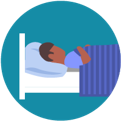
Rethink your travel plans
- Avoid travelling unless strictly necessary. This is especially true if you are planning on visiting countries where significant outbreaks are occurring.
Stay home if you’re sick
- Stay home if you are sick, except to get medical care. Learn what to do if you are sick.
Anyone concerned that they may have been exposed to, or are experiencing symptoms of COVID-19 (coronavirus), should self-isolate. Contact their primary care provider, call 811, or visit the Alberta Health self assessment.
If you are a Preventous medical or cosmetic patient, we are happy to provide you with additional information, answer questions and triage you over the phone at 403.229.0129.
Health is more than the lack of illness
Not being ill does not equate to being and feeling healthy; as preventative healthcare professionals we know that proactively seeking physical, mental, and emotional wellbeing is what makes us and our patients truly healthy. The current global pandemic has resulted in feelings of uncertainty, anxiousness and stress for many of us. While this emotional state is very common during challenging times, it’s important that we do our best to take care of our Mental Health.
The World Health Organization published a very helpful guide on why and how we need to protect and nurture our mental health during this difficult time. Some key highlights include:
Minimize watching, reading or listening to news that causes you to feel anxious or distressed; seek information only from trusted sources.
Protect yourself and be supportive to others. Assisting others in their time of need can benefit the person receiving support as well as the helper.
Find opportunities to amplify positive and hopeful stories and positive images.
Acknowledge the role of caretakers and healthcare workers who support the public and keep your loved ones safe.
Help children find positive ways to express feelings such as fear and sadness. During times of stress and crisis, it is common for children to seek more attachment and be more demanding on parents.
Maintain familiar routines in daily life as much as possible, or create new routines, especially if children must stay at home.
Stay connected and maintain your social networks.
Pay attention to your own needs and feelings. Engage in healthy activities that you enjoy and find relaxing.
